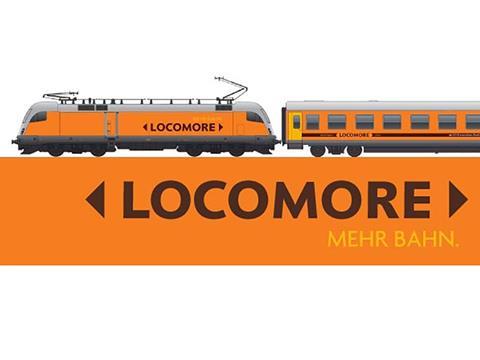
GERMANY: Plans to use crowd funding to launch a Berlin – Stuttgart open access passenger service in September 2016 have been announced by Locomore.
The company says it needs a minimum of €450 000 to cover start-up costs including leasing locomotives and coaches and recruiting staff, and it has set a fundraising target of €780 000. So far €150 000 has been agreed and loans worth €60 000 are expected, leaving €240 000 to be raised.
Locomore was founded in 2007 by Derek Ladewig, who holds a 61·5% stake in the business. Other team members hold 16%, and around 15 silent partners 22·5%. Ladewig was involved in the launch of Hamburg-Köln-Express, but left citing ‘insurmountable differences regarding the strategic direction’ with majority investor RDC.
Supporters of the proposed Berlin – Stuttgart service can buy advance tickets, including seats on the first train planned for September 4 2016 or vouchers for multiple journeys. It is also possible to subscribe to four-year micro loans from €500, with interest from 3% to 8% and profit sharing.
A five-year framework agreement for train paths has been reached with DB Netz for the proposed daily service, which would start at Berlin Lichtenberg, call at the city centre stations and then at Wolfsburg, Hannover Hbf, Göttingen, Kassel-Wilhelmshöhe, Fulda, Hanau, Frankfurt (Main) Süd, Darmstadt, Heidelberg, Vaihingen (Enz) and Stuttgart Hbf.
A maximum speed of 200 km/h would give a journey time of 6½ h, which Locomore says would be ‘only slightly slower’ than DB’s ICE services but ‘significantly faster’ than a long-distance bus. The modernised compartment coaches would offer ‘classic inter-city comfort’, with wi-fi, tables, power sockets, and the ability to carry bicycles. The company would use renewable energy and have organic and fair trade onboard catering.
Passengers will be able to register for profit sharing, whereby if a service reaches a 75% loading they would receive a discount of 3%, rising to 7% if the train is full.
Future plans include Binz (Rügen) – Berlin, Berlin – Dortmund – Köln – Bonn and Frankfurt – München services.

















